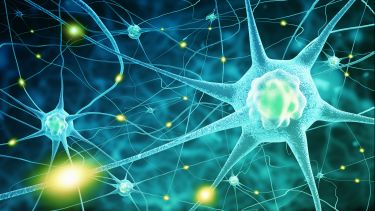Exciting new research at the University of Sheffield is offering patients with severe neurodegenerative disorders the hope of new therapies in the future.
The research provides a detailed study of the genetic and cellular malfunctions that lead to the symptoms experienced as part of neurodegenerative diseases such as motor neuron disease (MND).
MND is one of the most common neurodegenerative disorders. It tends to affect people in the middle of their active life and is caused when motor neurons, which control movement of our body, die. Patients experience a rapid deterioration of muscle movement and usually die within 3-5 years of disease onset. No treatments currently exist.
The most common genetic cause of MND happens when part of a gene, called C9orf72, repeats more times than it should, the equivalent of a single word in a series of instructions being repeated over and over again. This repeated information makes the genetic information in the patient’s DNA become unstable and break.
While healthy cells have repair toolkits specially designed to fix these breaks, a further consequence of the over-repeated genetic information is that the cell’s usual rubbish collection process (autophagy) goes into overdrive, and it also destroys the repair toolkits. The overall consequence of these genetic errors is the death of the neurons.
In new research, undertaken within the University’s Department of Molecular Biology and Biotechnology, and the Sheffield Institute for Translational Neuroscience, scientists were able to correct the out-of-control process of autophagy. Even though the DNA was still damaged, the cells were able to cope and did not die.
Professor Sherif El-Khamisy, Wellcome Trust Investigator, said: "I am really excited about our findings. Our results offer real evidence that it might be possible to reduce the process of genetic breakage by preserving a patient’s DNA repair toolkit, which will, ultimately, reduced the cell death and slow disease progression.
"We have a lot more research to undertake because the neurodegeneration is caused by a complex series of events that take place in the affected cells. However, we have a clear way forward that we hope will benefit MND patients as well as many others who suffer from other neurodegenerative disorders."
PhD student, Callum Walker, said "I really enjoyed the inspiring experience working on the project and I am excited by our discovery of the mechanism of DNA defect repair in motor neuron disease. I look forward to taking these molecular findings into novel therapies."

